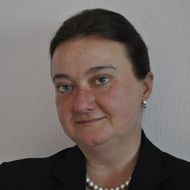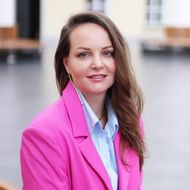- A
- A
- A
- ABC
- ABC
- ABC
- А
- А
- А
- А
- А
- HSE University
- Faculties
- Faculty of Economic Sciences
- School of Finance
- News
- HSE University’s Online Campus Launches Courses on Three Partner Platforms
-
The School
-
RESEARCH ACTIVITIES
- Laboratories
- Series “Advanced studies in emerging market’s finance” at Springer Nature o Networking with international academic associations
- Networking with international academic associations
- Research seminars
- International PhD workshop
- The International Seminar «ESG Transformation»
-
RESEARCH WORKING GROUPS
- Research Working Group "Innovations in the banking sector, its financial stability and prudential regulation"
- BUSINESS EDUCATION
- Networking with business associations
- Networking with professional associations
- Center for Research on Non-Financial Reporting
-
DATABASES
119049 Moscow, Russia
11 Pokrovskiy boulevard, room S629
Phone:
+7 (495) 772-95-90*27447, *27947, *27190
+7 (495) 916-88-08 (Master’s Programme Corporate Finance)
- Email: df@hse.ru
Head of Corporate Finance Research Center, Dr., tenured professor

+7495-772-95-90 (add. 27447)

+7495-772-95-90 (add. 27947)
The HSE School of Finance is the leading Russian competence center in the field of corporate finance, business valuation, banking, stock market, risk management and insurance, accounting and audit.
HSE is the first Russian university in the global ranking "QS - World University Rankings by subject", 2022 in the subject area of Accounting and Finance. Moreover, the university is the 1-st in the rating "THE World University Rankings by subject" in the subject area of Business & Management Studies, 2022
Cherkasova V. A., Nenuzhenko I.
Journal of Economic Integration. 2022. Vol. 37. No. 1. P. 54-92.
Electronic Journal of Applied Statistical Analysis. 2022. Vol. 15. No. 1. P. 187-210.
Kolade S. A., Semenova M.
Financial Economics. FE. Высшая школа экономики, 2022. No. WP BRP 87/FE/2022.
Управление финансовыми рисками. 2022. Т. 70. № 2. С. 108-120.
In bk.: The 8th International Conference on Information Technology and Quantitative Management (ITQM 2020 & 2021): Developing Global Digital Economy after COVID-19. Vol. 199: The 8th International Conference on Information Technology and Quantitative Management (ITQM 2020 & 2021): Developing Global Digital Economy after COVID-19. Manchester: Elsevier, 2022. P. 798-805.
Korablev D., Poduhovich D.
Journal of Corporate Finance Research. 2022. Vol. 16. No. 1. P. 136-145.
Olkhovik V., Lyutova O. I., Juchnevicius E.
Научно-исследовательский финансовый институт. Финансовый журнал. 2022. Vol. 14. No. 2. P. 73-90.
Churyk N. T., Anna Vysotskaya, Kolk B. v.
Journal of Accounting Education. 2022. Vol. 58.
Абдрахманова Г. И., Васильковский С. А., Вишневский К. О. и др.
М.: Издательский дом ГУ-ВШЭ, 2022.
Абдрахманова Г. И., Васильковский С. А., Вишневский К. О. и др.
М.: Национальный исследовательский университет "Высшая школа экономики", 2022.
Гришунин С. В., Сулоева С. Б., Пищалкина И. И.
Организатор производства. 2022. Т. 30. № 1. С. 60-72.
Гришунин С. В., Сулоева С. Б., Пищалкина И. И.
Экономический анализ: теория и практика. 2022. Т. 21. № 3. С. 478-496.
S. Grishunin, E. Naumova, N. Lukshina et al.
Russian Management Journal. 2021. Vol. 19. No. 4. P. 475-493.
Journal of Corporate Finance Research. 2022. Vol. 16. No. 1. P. 99-112.
Grishunin S., Bukreeva Alesya, Alyona A.
In bk.: The 8th International Conference on Information Technology and Quantitative Management (ITQM 2020 & 2021): Developing Global Digital Economy after COVID-19. Vol. 199: The 8th International Conference on Information Technology and Quantitative Management (ITQM 2020 & 2021): Developing Global Digital Economy after COVID-19. Manchester: Elsevier, 2022. P. 190-197.
 International Conference “Future Directions in Accounting and Finance Education”, 27-28 May 2019, Moscow, Russia
International Conference “Future Directions in Accounting and Finance Education”, 27-28 May 2019, Moscow, Russia
Edited by: А. Б. Высотская, B. v. Kolk.
Vol. 58. Elsevier, 2022.
Karamysheva M., Seregina E.
Journal of International Money and Finance. 2022. Vol. 127.
In press
Journal of Economic Dynamics and Control. 2022. Vol. 137.
Karamysheva M., Skrobotov A.
Journal of Economic Dynamics and Control. 2022. Vol. 138.
Известия Санкт-Петербургского государственного экономического университета. 2022. № 4. С. 144-155.
Тихомиров Д. В., Цехомский Н. В.
Экономика и управление. 2022. Т. 28. № 1. С. 16-24.
Селезнёва З. В., Евдокимова М. С.
Финансы: теория и практика. 2022. Т. 26. № 3. С. 64-84.
Evdokimova M., Stepanova A. N.
In bk.: 38th EBES Conference - Program and Abstract Book. Istanbul: EBES, 2022. P. 39.
Assanskiy A., Shaposhnikov D., Tylkin I. et al.
Journal of Behavioral and Experimental Economics. 2022. Vol. 98.
Teplova T., Mikova E., Munir Q. et al.
Economic Change and Restructuring. 2023. Vol. 56. No. 1. P. 515-535.
Повх К. С., Кокорева М. С., Степанова А. Н.
Экономический журнал Высшей школы экономики. 2022. Т. 26. № 1. С. 9-36.
Anton Markov, Zinaida Seleznyova, Victor Lapshin.
Journal of Finance and Data Science. 2022. Vol. 8. P. 180-201.

HSE University’s Online Campus Launches Courses on Three Partner Platforms

Open online courses from leading HSE University researchers are now available on the Russian platforms Lektorium and Edutoria and the Chinese platform XuetangX. HSE University’s online campus now offers more than 350 large-scale open online courses taken not only by HSE students and external attendees, but also by 15,000 online students from partner universities in Russia and other CIS countries.
The online campus is actively diversifying the range of products available, offering ten specialisations in the fields of economics, marketing, finance, and computer science. Each specialisation is a package of courses (from 4 to 7) and a practice-oriented end project which can only be implemented once all courses have been successfully completed. Students receive a microqualification and quickly learn new competencies that they can immediately apply in practice. The specialisations are integrated into HSE University’s online bachelor’s and master’s programmes. For example, the Basics in Computer Vision specialisation is part of the Master of Computer Vision programme, while Introduction to Value Based Business Analytics is part of the Master of Business Analytics programme.
The online courses not only ensure flexibility in higher education—recordings of video lectures can be watched at any time and rewatched to revise material—but they also allow users to try out the programme content and determine whether the academic and practical components meet their expectations.
HSE University’s online courses are available on the university’s own platform, as well as the Akademika platform from Skillbox and the Open Education national platform, which was cofounded by HSE University and now has 2.7 million subscribers. As of December, the university’s online courses are now available on new resources. HSE Online offers two courses on the Lektorium platform: Introduction to Smooth Manifolds by Ilya Vyugin, Senior Research Fellow at the RAS Institute for Information Transmission Problems and Associate Professor at the HSE University Faculty of Mathematics, and Introduction to Number Theory by Vladimir Sharich, Senior Lecturer at the HSE University Faculty of Mathematics.

Vladimir Sharich, creator of the course ‘Introduction to Number Theory’
‘In data-driven businesses, key personnel must have good abstract and categorical thinking skills. Number theory, like any form of pure mathematics, helps to train this kind of thinking. It is the same as how football players can benefit from doing pull-ups to stay in shape—it is not directly in your area of activity, but it trains some necessary muscles. The three-week course covers topics relevant to the development of digital technologies. Knowledge of these allows one to better understand how a computer “thinks”; cryptography is entirely based on this. It is an essential arsenal for developers and data analysts.’
The Edutoria educational platform from Sber has more than one million active users per month. Six HSE University courses are available as part of a subscription to the platform:
1. Banking (Natalia Gorelaya)
2. Computer Vision (Anton Lebedev, Artem Filatov)
3. Brain and Psyche (Oksana Zinchenko)
4. Risk Management (Sergey Shvets)
5. Theatre and Theatricality (Olga Roginskaya)
6. Game Theory (Dmitry Dagaev)

Natalia Gorelaya, Associate Professor of the School of Finance at the HSE University Faculty of Economic Sciences, creator of the ‘Banking’ course
‘The course will also be of interest to students of non-core programmes. It does not require a serious background in the field, for example, in macroeconomics or financial mathematics. Multidisciplinarity is becoming a global trend. For example, in finance it is possible to clearly identify areas for studying the opportunities presented by digitalisation, with a focus on people and personal qualities. I believe that similar processes are underway in other scientific fields. This prompts interest not only in related fields, but in those outside of one’s subject area.’

Anton Lebedev, Chief Data Scientist at the startup Neatsy (a mobile app with a 3D foot scanner for choosing sneakers)
‘We talk about methods that allow machines to see like people. This is a non-trivial matter, because for us, unlike for computers, vision is natural: we do not treat images as a set of numbers. We immediately see objects and instantly understand what they are. The aim of computer vision is to teach machines to do the same thing, to teach them to handle cases as well as humans. The course will cover the most popular tasks and methods in computer vision, from creating photo effects to recreating 3D scenes from a selection of images.’
The XuetangX platform was founded in 2013 by Tsinghua University, China. HSE University plans to offer four courses on the platform:
1. ‘Introduction to Neuroeconomics: How the Brain Makes Decisions (Vasily Klyucharev)’
2. ‘Econometrics’ (Elena Semerikova)
3. ‘Theory of Finance’ (Pavel Malyshev)
4. ‘Mathematics of Economics’ (Kirill Bukin)

Yulia Remezova
‘Since 2013, HSE University has recorded online courses from major figures in the academic community and leading industry experts. The high level of competition in the digital education market motivates us to constantly improve production, develop video content, implement elements of edutainment, and form a community of online students,’ explains Yulia Remezova, Director for eLearning at HSE University. ‘What is more, for ten years, HSE University has maintained its leading positions as a university—a transmitter of unique academic expertise. Course users trust the reputations of HSE University’s scientists, researchers, and brand. Cooperation with major Russian platforms and expansion into new eastern markets allows us to scale up the university’s content and attract billions of new users.’
- About
- About
- Key Figures & Facts
- Faculties & Departments
- International Partnerships
- Faculty & Staff
- HSE Buildings
- Public Enquiries
- Studies
- Admissions
- Programme Catalogue
- Undergraduate
- Graduate
- Exchange Programmes
- Summer University
- Summer Schools
- Semester in Moscow
- Business Internship
-
https://elearning.hse.ru/en/mooc/
Massive Open Online Courses
-
https://www.hse.ru/en/visual/
HSE Site for the Visually Impaired
-
http://5top100.com/
Russian Academic Excellence Project 5-100
- © HSE University 1993–2024 Contacts Copyright Privacy Policy Site Map
- Edit


